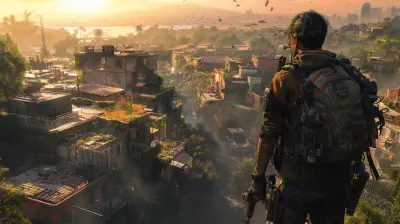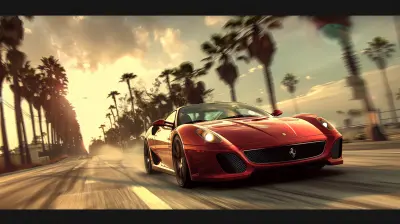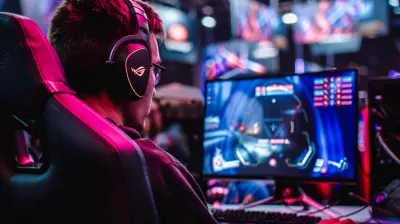How Music Sets the Tone Before You Even Start Playing
17 November 2025
Let’s be brutally honest here—before you’ve even hit “New Game” or skipped through a painfully long cutscene, what’s already playing with your emotions? Yup, it’s the music. That sweet, dramatic, or downright chaotic tune that hits you right as you boot up the game. Like a DJ at a party who knows exactly when to drop your favorite track, video game music knows how to set the stage, stir up emotion, and yank you right into its world—sometimes before you’ve even pressed a single button.
So grab your headphones or crank up those speakers, because we’re diving deep into how music sets the tone before you even start playing. Get ready for a sonic rollercoaster that’s about to blow your mind… and your eardrums—in the best way possible.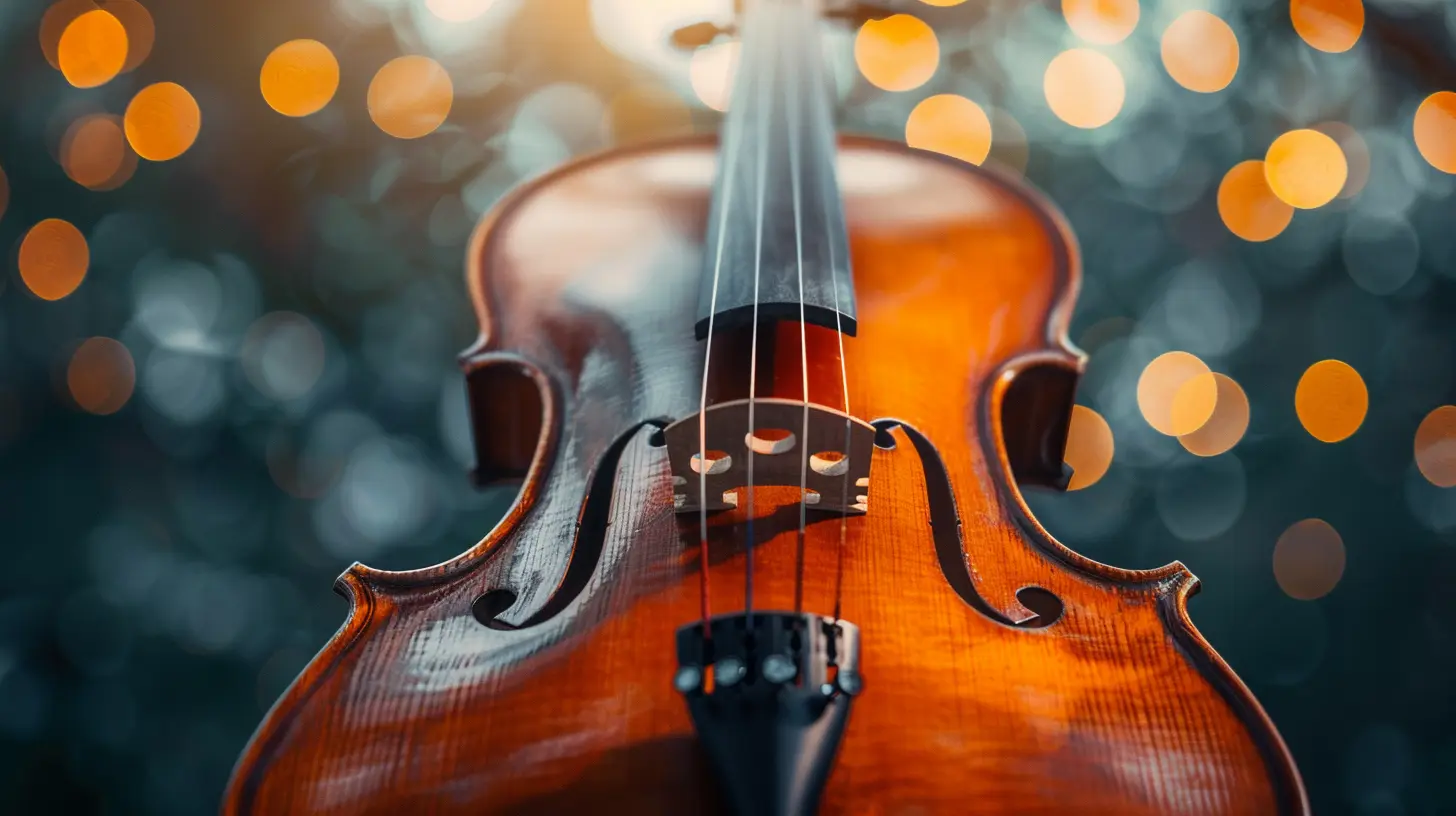
🎮 Welcome to the World: The Power of the Main Menu Music
You ever sat at a game’s main menu screen way longer than you should’ve… just vibing? Yeah, you’re not alone. Main menu music is the first handshake, the opening sentence, the teaser trailer for everything you’re about to experience. Not only does it establish the game’s mood, but it sneakily tells you what kind of ride you’re in for.Let’s talk examples, shall we?
- Halo’s Gregorian chanting: Mysterious. Epic. Makes you feel like you’re about to enter a sci-fi cathedral of war.
- The Legend of Zelda’s soft, adventurous orchestration: Whispers, “Grab your sword, we’re off on a magical quest.”
- DOOM (2016)’s metal-heavy hellspawn intro: Screams, “You’re here to rip and tear. Let’s gooo!”
Music is the game’s way of flipping on the mood lighting before the party starts. It teases the drama or chaos that’s coming and gets your adrenaline or curiosity all warmed up.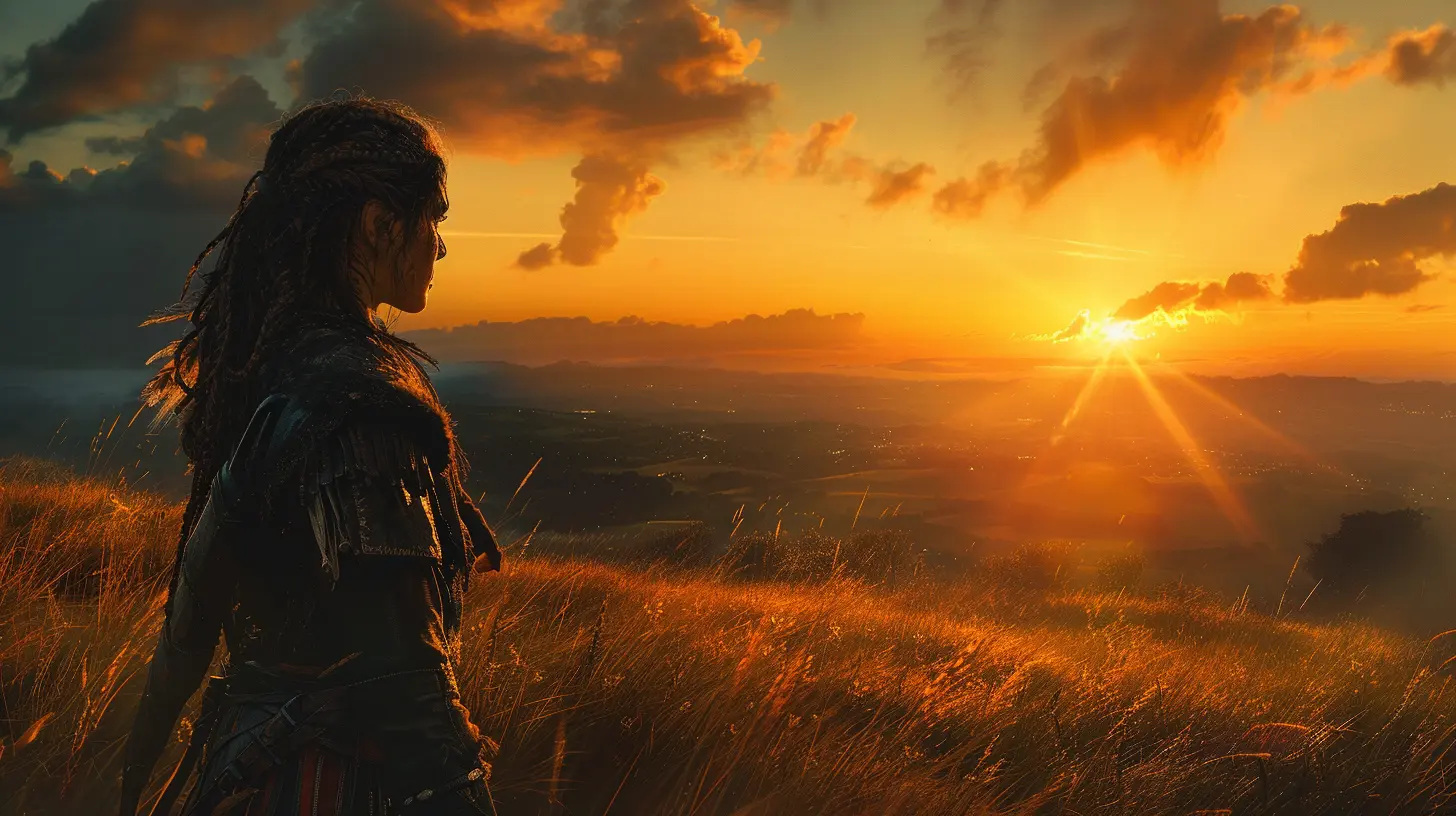
🧠 The Psychology of Sound: Why Your Brain Cares So Much
Want to know why game music hits harder than your morning coffee? Because your brain is wired to react to sounds emotionally—especially when you're anticipating something.Before you even know what's coming, your brain’s like, “Hey, this music is eerie AF... should I be worried?” or “Okay, this bop is hype... are we about to win something?”
Music taps into the limbic system—yep, the part that handles emotion. So when an RPG gives you sweeping orchestras, it's basically whispering to your brain, “Feel grand! Feel emotional! You're the chosen one!”
And when a horror game layers slow, ambient tones with distorted echoey noises, yeah... your brain’s already sweating bullets. Before you’ve encountered one rotten zombie, you’re already on edge. That’s some powerful psychological voodoo right there, all courtesy of sound.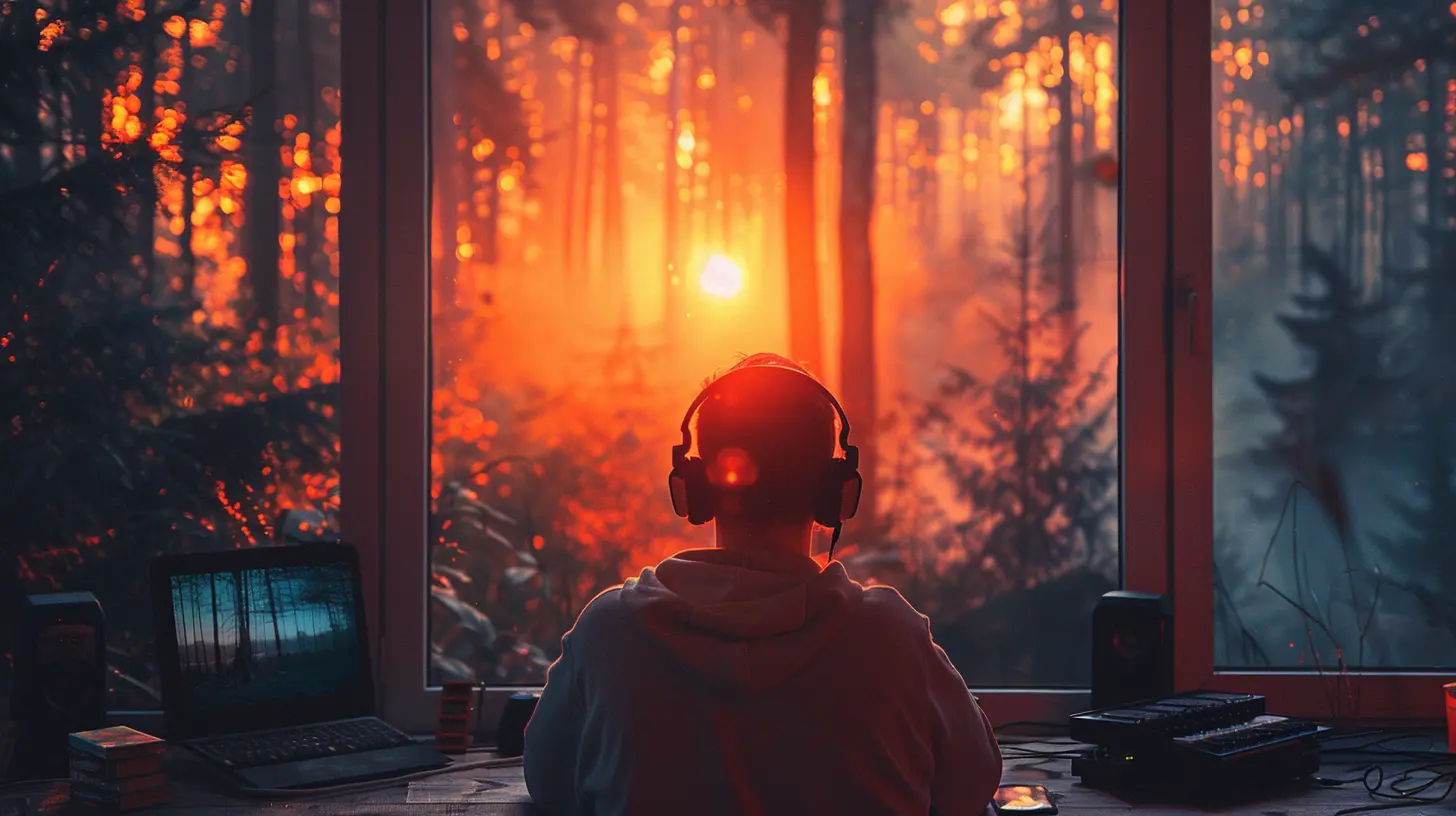
⚔️ Genre by Genre: What the Music Tells You Before the Game Even Starts
Let’s break this down and serve it hot. Every genre's got its own musical fingerprint before you even touch the controls. Here’s how music sets the tone in different genres:1. Action Games: Get That Heart Pumping
Fast-paced. High-tempo beats. Guitar riffs sharper than your character’s daggers.These games want you amped before round one even loads. Think: God of War, Devil May Cry, or pretty much any shooter.
The music screams, “Danger’s coming, so strap in and get ready to wreak havoc!”
2. Horror Games: Creepin’ on Your Spine
Silent whispers. Sudden high-pitched screeches. Droning bass that makes your stomach churn.Yup, horror games love to mess with your head before the terror even begins. Resident Evil, Silent Hill, or the indie darling Inside use music to signal unease. You’re not just playing a game; you’re walking into your worst nightmare—and you’re paying for the privilege.
3. RPGs: Epic Journeys Need Epic Soundtracks
Sweeping orchestras. Ethereal choirs. Melodies that make you feel like you’re standing on the edge of destiny.Games like Final Fantasy, The Witcher, or Dragon Age use music to pre-frame massive quests and emotional storytelling. You're not just about to play; you're about to embark on an odyssey.
4. Indie Games: Mood Over Muscle
Indie devs? Oh, they get creative. Think minimalist piano, lo-fi beats, or quirky electronic tunes.Games like Celeste or Hollow Knight don’t hit you with AAA production. Instead, they go for feels. Their music says, “Hey, this is gonna be personal, emotional, and maybe existential.” So grab a box of tissues.
🎧 Music Doesn't Just Set Tone—It Sets Expectations
Here’s the big kicker: pre-game music isn’t just ear candy. It’s a promise.It’s a subtle way for the game to whisper what kind of experience you’re signing up for. A slow, melancholic tune? Get ready for tragedy. A triumphant overture? Expect heroic moments. A pulsing EDM track? Buckle up for fast-paced, chaotic fun.
Music guides your expectations. It tells you how to feel before the story even kicks off. And that’s a storytelling trick that’s as old as theater but feels fresh every time you boot up a new title.
🕹️ Character Themes: How Music Builds Anticipation
You know what takes this whole music-sets-the-tone thing to the next level? Character themes.Let’s face it—some characters enter with such iconic music, you already know their vibe before they even speak. Their intro music is their calling card.
Think:
- Sephiroth’s “One Winged Angel” from Final Fantasy VII... dramatic, terrifying, unforgettable.
- Sans’ “Megalovania” from Undertale... chaotic, defiant, full-on meme-worthy.
- Trevor’s theme from GTA V... gritty, unsettling, and explosively unpredictable.
When a character gets a theme, the game is doing more than just flexing its soundtrack. It’s setting emotional expectations. You already know they’re dangerous, noble, ridiculous, or tragic. You feel it in those first few notes.
🐣 Even Tutorials Aren’t Safe from Musical Vibes
So you’ve made it past the menu, adjusted your settings for the hundredth time, and now you’re in the tutorial. Guess what’s still steering the emotional wheel?Yep—music.
Even the earliest in-game moments are designed with curated soundscapes. Why? Because devs want you invested from minute one. The music during tutorials is often hopeful, chill, or lightly dramatic—not overwhelming, but enough to keep your senses tingling.
Games like Ori and the Blind Forest don't just teach you controls—they pull at your heartstrings while doing it. And don't even get me started on Journey. That game turns a sand dune into a symphony.
🎶 Soundtracks That Became Legends
Some game soundtracks are so iconic they transcend the game itself. You’ve got playlists of them. You listen while you work, study, or walk dramatically to your fridge at 2 a.m.Let’s name-drop a few hall-of-famers:
- Skyrim’s “Dragonborn” theme. If you didn’t yell "Fus Ro Dah!" at least once, you’re not human.
- Red Dead Redemption II’s “Unshaken”. Emotional damage in musical form.
- Persona 5’s jazz-funk score. Cool, rebellious, dangerously addictive.
- Minecraft’s ambient pieces by C418. Peaceful, nostalgic, unexpectedly gut-wrenching.
These soundtracks prove one thing: music isn’t just background noise. It's a co-pilot driving every ounce of immersion.
📡 Adaptive vs. Static Music: The Evolution of Gaming Soundscapes
Now we’re getting technical. But hang with me, this is cool.Early games had static soundtracks—same tune, on loop, no matter what you’re doing. Catchy? Yes. Dynamic? Nah.
But now? We’ve got adaptive music, baby. Music that changes based on what’s happening. It reacts to your actions, your location, and even your decisions.
- Sneaking around? The music gets quiet and tense.
- Enemies up ahead? Boom—intensity kicks in.
- Boss battle? Cue the full orchestral power with layered choirs screaming in Latin.
Games like The Last of Us Part II, Doom Eternal, or Ghost of Tsushima use adaptive music like a freakin’ mood ring. And guess what—it starts before you even jump into the action. The opening tune already starts that rollercoaster.
⚙️ Developers Know the Assignment
Here’s the behind-the-scenes truth: game developers aren’t just randomly picking bangers out of a playlist. They’re crafting the soundtrack with the same care they give to storylines and graphics.Composers work hand-in-hand with designers to make sure that music nails the mood, echoes the themes, and supports storytelling.
It’s not accidental that a game’s music hits just right—it’s alchemy. And the best devs? They’re straight-up wizards.
🧙♂️ Conclusion: Music Is the Game Before the Game
Let’s wrap this up with some real talk: music isn’t just some fancy little accessory in games. It’s the heartbeat. The pulse. The opening monologue that sets you on the edge of your seat before you’ve even picked up the controller.It sets the emotional stage. It primes your brain. It builds hype, tension, nostalgia, or fear. Before you even play, the game is already playing you—with music.
So the next time you boot up a new title and that first note hits? Sit for a second. Listen. Absorb. Because you’re not just hearing sound—you’re stepping into a new world.
And sometimes, that world is defined not by what you see first... but by what you hear.
all images in this post were generated using AI tools
Category:
Game SoundtracksAuthor:

Audrey McGhee
Discussion
rate this article
2 comments
Layne Franco
Great insights! Music truly enhances the gaming experience!
February 16, 2026 at 5:40 AM
Poppy Barnes
Music profoundly shapes emotional engagement before gameplay begins.
November 18, 2025 at 4:06 AM

Audrey McGhee
Absolutely! Music sets the emotional landscape and primes players for the experience ahead, enhancing engagement right from the start.
